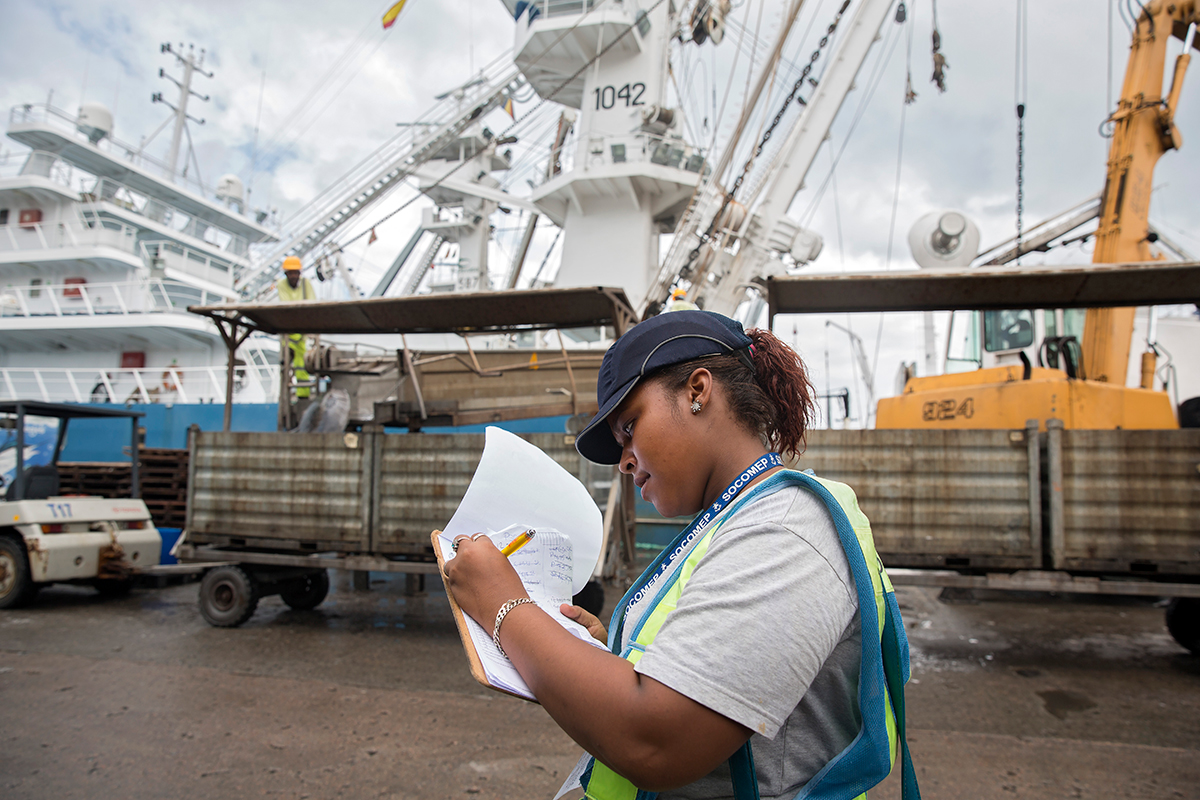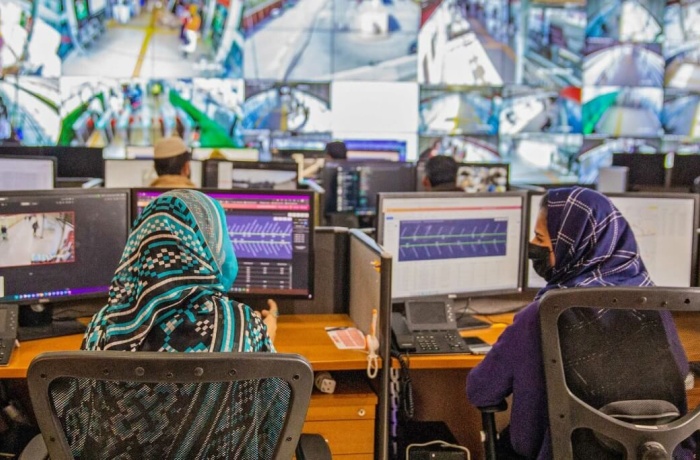Five things to accelerate women’s economic empowerment
Investing in women benefits women and society as a whole. At the current rate of investments however, more than 340 million women and girls will still live in extreme poverty by 2030. It has never been more urgent to advance women’s economic empowerment, as marked by the 2024 theme for International Women’s Day: “Invest in women: Accelerate progress”.

The world needs an additional USD 360 billion per year for developing countries to address gender equality under the Sustainable Development Goals.
And while increasing women’s share of assets and finance is vital for their economic empowerment, equally important is building institutions that promote public investment in social goods and sustainable development.
Five things guaranteed to accelerate women’s economic empowerment are:
Resources
Connecting women with financial resources can help them meet their basic needs and start or grow businesses. However, it is estimated that micro, small, and medium-sized businesses owned by women globally are underfunded by USD 1.7 trillion. Closing the credit gap for women owned small and medium enterprises would result in a 12 per cent increase in annual incomes on average by 2030.
In addition to financial resources, women need access to land, information, technology, and natural resources. In 2022, 2.7 billion people still lacked internet access, which is fundamental for getting a job or starting a business.
Women are also less likely than men to own or have secure rights for agricultural land in 87 per cent of countries where data is available, despite the fact that more than one-third of working women are employed in agricultural industries.
When women do have equal rights to access, own, and use resources, they can invest in themselves by improving their well-being, education, starting a business or exercising agency over their income to build a society that works for them. For example, in many contexts women’s economic empowerment reduces gender-based violence, increases political and social participation and leadership, and facilitates disaster risk reduction.1
Jobs
When women thrive in the world of work, they are better positioned to exercise their agency and realize their rights. But not just any job will do: work must be productive and in conditions of freedom, equity, security, and dignity. Nonetheless, nearly 60 per cent of women’s employment globally is in the informal economy, and in low-income countries it is more than 90 per cent. And even when women do have jobs, they are paid 80 cents for every dollar earned by men on average, and even less for some, including women of colour and mothers. Gender inequality in earnings alone costs the world more than twice the value of global GDP in terms of human capital wealth.
Measures such as pay transparency, equal pay for work of equal value, and access to care services can help close the gender pay gaps in pay leading to gender equality in the workplace.
Increasing women’s meaningful participation in sectors where they are currently underrepresented including in science, technology, and engineering is key to their empowerment.
The world could see a 20 per cent increase in GDP by closing gender gaps in employment. Furthermore, when women entrepreneurs are successful, they can create jobs and drive innovation.
Time
Everyone requires care in their lifetime. The existing social organization of care reflects profound inequalities of status and power and often exploits the labour of women and girls. On average, women spend around three times more time on unpaid care and domestic work than men.
The gendered disparities in unpaid care work are a profound driver of inequality, restricting women’s and girls’ time and opportunities for education, decent paid work, public life, rest and leisure.
Care work remains undervalued and underpaid. The monetary value of women’s unpaid care work globally is at least USD 10.8 trillion annually, three times the size of the world’s tech industry.
Investing to transform care systems is a triple win: it allows women to reclaim their time while creating jobs in the care sector and increasing access to care services for those that need them. It is estimated that closing existing gaps in care services and expanding decent work programmes would create almost 300 million jobs by 2035.
When access to care is considered a right, and the responsibility is shared with the state through the provision of public goods and services, and the private sector through supports like maternity leave and childcare facilities, women are enabled to participate in the formal labour market to use their time to generate income.
Security
Women face numerous threats to their security, including gender-based violence, conflict, food insecurity, and a lack of social protection. Violence at home or in the workplace is a violation of women's rights and impedes their economic participation. The global cost of violence against women is estimated to be at least USD 1.5 trillion or approximately 2 per cent of global gross domestic product.
The number of women and girls living in conflict-affected countries reached 614 million in 2022, 50 per cent higher than the number in 2017. Such crises can exacerbate pre-existing economic disparities, such as women’s disproportionate share of unpaid care work. Crises also deepen inequalities among women; for example, migrant women are twice as likely to experience violence than non-migrants.
Research suggest gender-responsive social protection systems like cash transfers, can reduce mortality rates among women, demonstrating the links between economic empowerment and security.1
No matter what form it takes, insecurity hinders women’s economic empowerment, traps them in poverty, and prevents them from realizing their rights and potential. It is critical to bring together diverse stakeholders, including in the private sector, and challenge social norms that value women as inferior to men as economic actors.
Rights
Human rights are at the core of women’s economic empowerment. Unjust, patriarchal economic systems perpetuate gender inequality, and discriminatory social norms stand in the way of women’s access to information, networks, jobs, and assets.
Globally, on average, women have only 64 per cent of the legal rights enjoyed by men. Key strategies to promote women’s rights in the context of economic empowerment include adoption of laws and policies that support women’s economic empowerment and repeal of discriminatory laws and legal frameworks.
While acknowledging the intrinsic value of women’s economic empowerment, which has human rights at its core, it is also important to account for the great costs of constraints on women’s economic empowerment on societies and economies. The protection and support for women human rights defenders, and accountability for human rights abuses are needed. This requires documenting women’s rights abuses, collecting sex disaggregated data, and developing partnerships for joint advocacy programmes.
It is necessary to develop and implement accountability mechanisms to protect women’s rights and ensure that women’s voices are amplified in all spaces of decision-making.
1. UN Women, 2015
2. Aaron Richterman and others, “The effects of cash transfers on adult and child mortality in lowand middle-income countries”, Nature, vol. 618, 15 June 2023.








